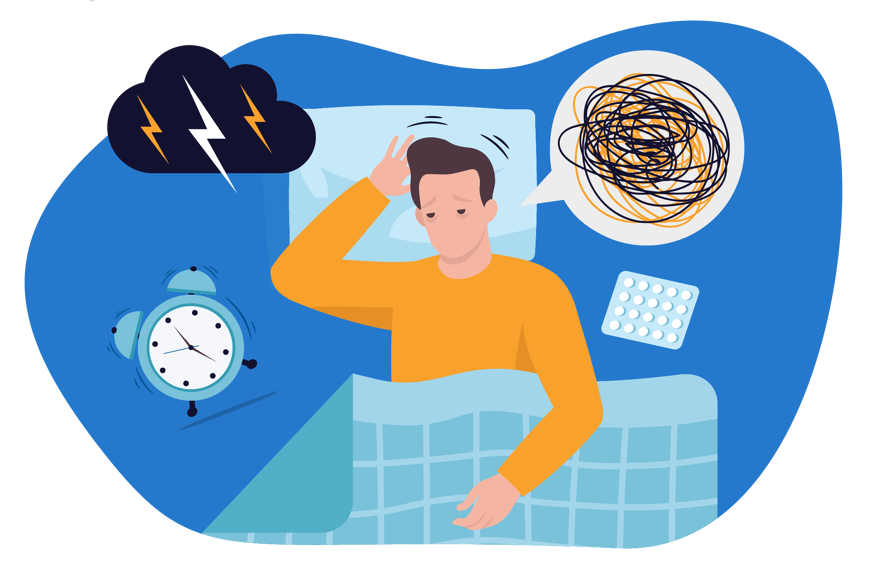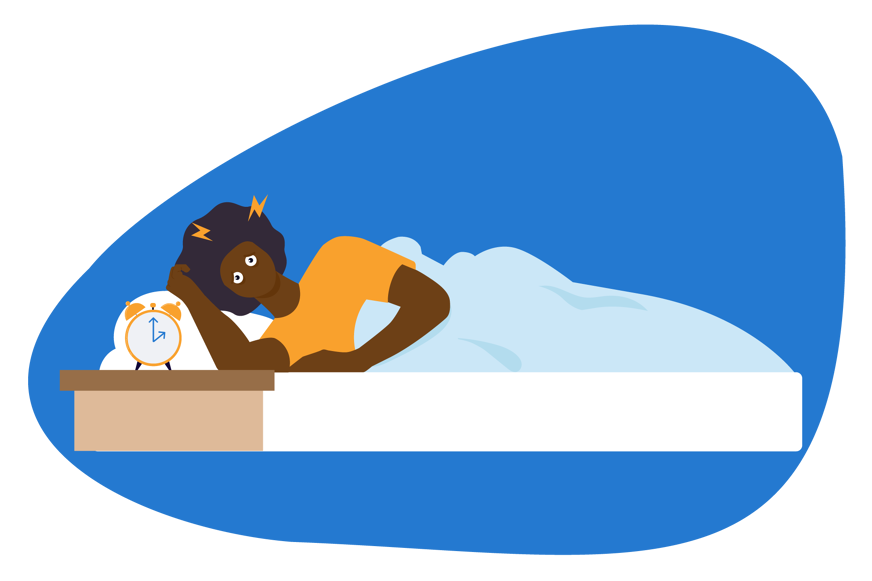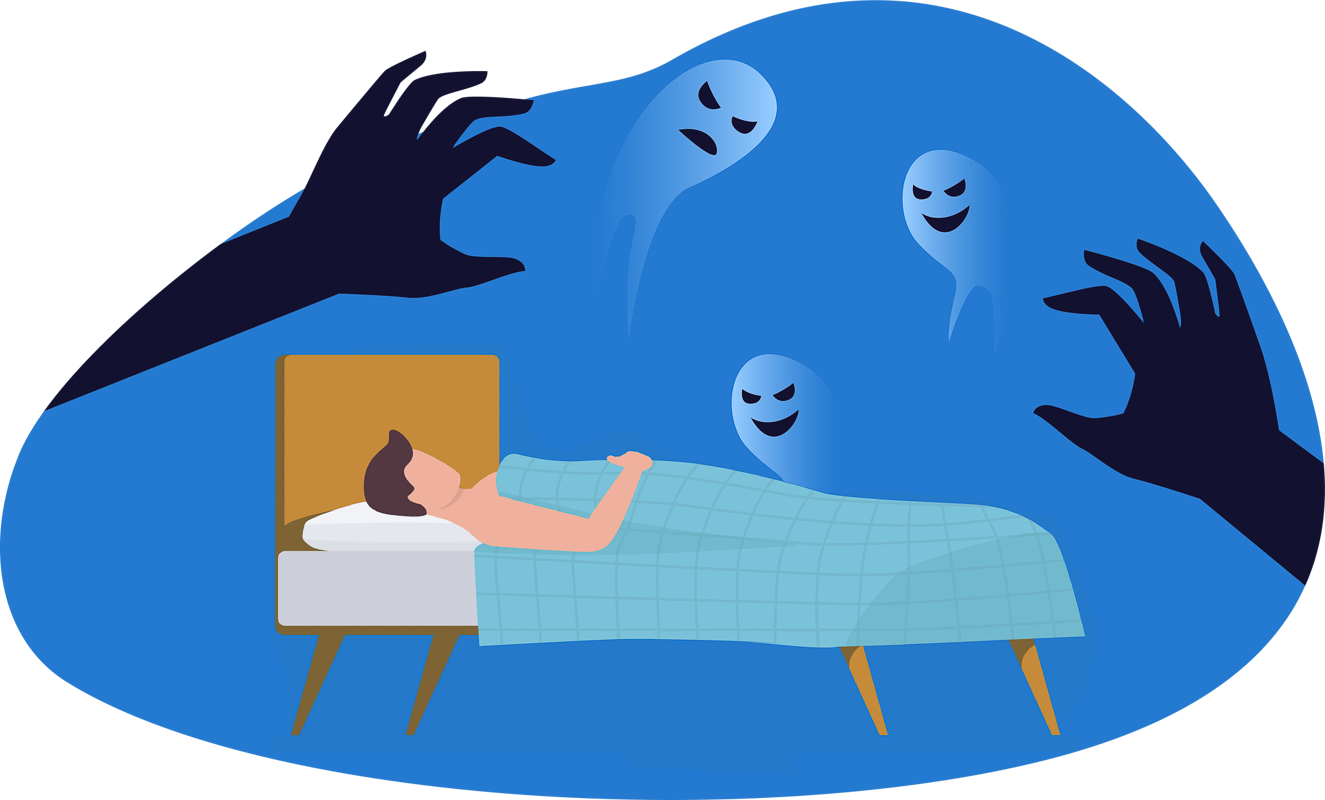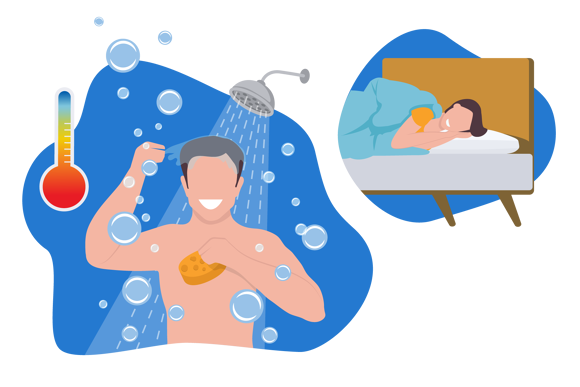Can cheese really lead to bad dreams?
It’s a long-standing myth that eating cheese before bed gives you nightmares.
As far back as 1964, a researcher noted that a patient stopped having nightmares once he cut cheese out of his diet [1]. 🧀
Anecdotes and studies, such as one funded by the British Cheese Board [2] in 2005 that suggests different types of cheese could influence dream content [3], largely re-fuelled the myth that cheese causes vivid dreams.
However, scientific studies examining the impact of various foods on sleep quality have not conclusively linked cheese consumption to an increase in nightmares or significantly disturbed sleep patterns.
Where does the myth of cheese causing nightmares come from?
Tales usually come from somewhere, so let’s explore a few options of why people may believe that cheese causes vivid dreams or bad dreams.
Psychological effects of belief
The myth of cheese causing nightmares may stem partly from the psychological effect of believing in it.
When individuals are primed to expect unsettling dreams after eating cheese, they may be more likely to attribute any strange dream experiences to the cheese they consumed before bed.
This phenomenon illustrates the power of suggestion in shaping our perceptions and experiences. 😮
Cheese’s high lactose content
Cheese, like other dairy products, contains lactose, a type of sugar that some people have difficulty digesting.
Individuals who are lactose intolerant [4] may experience gastrointestinal discomfort, such as bloating or gas, after consuming cheese, especially if consumed in large quantities or close to bedtime.

Discomfort or digestive disturbances during sleep could potentially disrupt sleep patterns and contribute to the perception of having nightmares.
Eating cheese as the last course of a meal
In many cultures, cheese is traditionally served as a final course in a meal, often accompanied by wine or other beverages. 🍷
Consuming cheese as the last course, particularly in combination with alcohol, may lead to indigestion or acid reflux in susceptible individuals.
Discomfort from these digestive issues could interfere with sleep quality and contribute to vivid or unsettling dream experiences.
Eating too much before bed
In addition to having cheese as the last course before going to sleep, simply going to bed with a full stomach [5] can negatively affect your sleep quality.
- Digestion requires energy and can be uncomfortable, leading to difficulty falling asleep or staying asleep.
- Lying down after eating can increase the risk of acid reflux or heartburn, causing discomfort and disrupting sleep.
- Digestive processes can also increase body temperature, which may interfere with the body's natural cooling process during sleep, leading to restlessness.
Overall, eating before bed or going to bed with a full stomach can impair sleep quality and leave individuals feeling groggy or fatigued upon waking.

And if cheese formed part of the last course of the meal, it’s more likely that cheese would have been to blame.
So does eating cheese before bed give you nightmares?
While the idea of cheese causing nightmares has persisted for centuries, scientific evidence paints a more complex picture.
Some individuals may experience unusual dreams after consuming cheese, but the relationship between cheese consumption and nightmares appears to be influenced by various factors, including individual digestion and metabolism differences.
Ultimately, the myth of cheese-induced nightmares may have more to do with cultural beliefs and individual experiences than with any inherent properties of cheese itself.












Alternatively, message us directly via the Contact Us page.